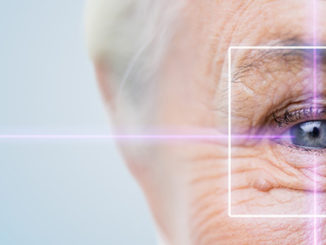Aging is a normal process linked to specific patterns and changes in the epigenome, particularly DNA methylation. Harnessing epigenetic mechanisms and understanding the epigenetic clock might enable us to slow or reduce human aging in the future, especially as scientific research reveals new associations and insights.
After DNA methylation patterns have been established during embryogenesis, researchers investigate how they are maintained, and how the environment can influence changes to marks on top of DNA during one’s lifespan.
Aging is a fact of life that cannot be avoided. From the moment we are born, every part of us starts to age, and slowly over time, the cells and tissues in our bodies progressively decline in their ability to repair and restore themselves. Our eyes get hit even harder by this occurrence, especially nowadays, as our daily routines include more screen time and less sleep. But what if the aging process could be stopped or, better yet, reversed? In [more…]
Why do some people stay healthy throughout their lives and others don’t? While we all age, we don’t all age in the same ways or at the same rate. Epigenetic modifications are largely responsible for this phenomenon, with DNA methylation being the most studied modification. An Epigenetic Clock is a sophisticated way of tracking our “real” age by measuring methylation or demethylation at particular DNA sites (Kanherkar, 2014). The uses for epigenetic clocks are manifold. The most obvious use comes [more…]
Aging is a universal human reality. Concern regarding aging—and a collective aversion to it—has even generated entire industry segments dedicated to anti-aging products, from expensive supplements through pricey lotions. People are afraid of the issues that can come up with advanced age: cancer, cognitive decline, wrinkles and age spots, mobility issues, sexual dysfunction, and any number of other impediments to daily life and ongoing vigor. Scientists want to understand the way aging is reflected in cells, for two key reasons. [more…]
Late onset Alzheimer’s disease is the most common form of the disease, which affects over 35 million people around the world with crippling dementia. Recent evidence suggests that early intervention can help slow down the memory loss—one of Alzheimer’s hallmark symptoms. Earlier intervention can occur with earlier detection, and so researchers have been focusing on finding minimally invasive ways to diagnose the disease before the severe dementia fully kicks in. A recent study to this effect was published in Clinical [more…]
Aging is one of life’s inevitable processes, and has been a hot topic for scientific research over the last few years. As we know, aging has many epigenetic factors, and can be affected by a number of different things like depression, bipolar disorder, and menopause. Generally, aging results in negative health effects due to the decreasing ability for the body to repair damage done to tissues and DNA over time. But Dr. Baris Tursun from the Max Delbrück Center for [more…]
The number of children diagnosed with asthma and allergies has risen tremendously in the last few decades, partly because of higher awareness. But the jury is still out on determining what exactly is driving this increase. Rapid changes in the environment and lifestyles factors may be to blame, yet much remains to be learned about the etiology of both these ailments. To further our understanding, scientists have been investigating the role of epigenetics to determine which biological mechanisms play a role [more…]
As we get older, our bodies begin to wear out and lose the ability to function as well as they once did. We start to ache for no reason, our hearing isn’t as adequate as it once was, and we become forgetful. Eyesight is usually one of the first casualties of aging. While most people will experience a deficiency in near focusing or presbyopia as they age, a common cause of gradual vision loss can be attributed to a disorder [more…]
Receiving the diagnosis of a brain cancer is undoubtedly disastrous news that nobody wants to hear for themselves or their loved ones. Although significant advances have been made to understand and treat many cancers, the mortality rate remains high for cancers of the brain. New research, however, may be shedding light on one form of brain cancer by investigating the epigenetic character of the disease. Glioblastoma is the most common and deadliest type of brain cancer in adults. It’s considered [more…]
The formation of memories has been a popular research topic among the science community. They occur by a familiar stimulus reactivating a specific group of neurons, but not much else is known about the exact logistics involved in how a memory is created and retained. Many memory-related disorders like Alzheimer’s and PTSD directly affect a person’s brain chemistry and are undoubtedly detrimental to their character and mental health. In a recent study published in the Journal of Neuroscience, researchers from the [more…]
Throughout our lives, all cells in our bodies experience a normal life cycle of growth, maturity, and death. During this time, our cells normally experience damage to DNA by normal functions of the metabolism, or exposure to certain environmental factors like UV light. Ordinarily, our body is able to repair the damage done to the DNA in order to restore healthy cell function. The older we get, the more DNA damage we experience, and if damaged DNA is unable to [more…]











